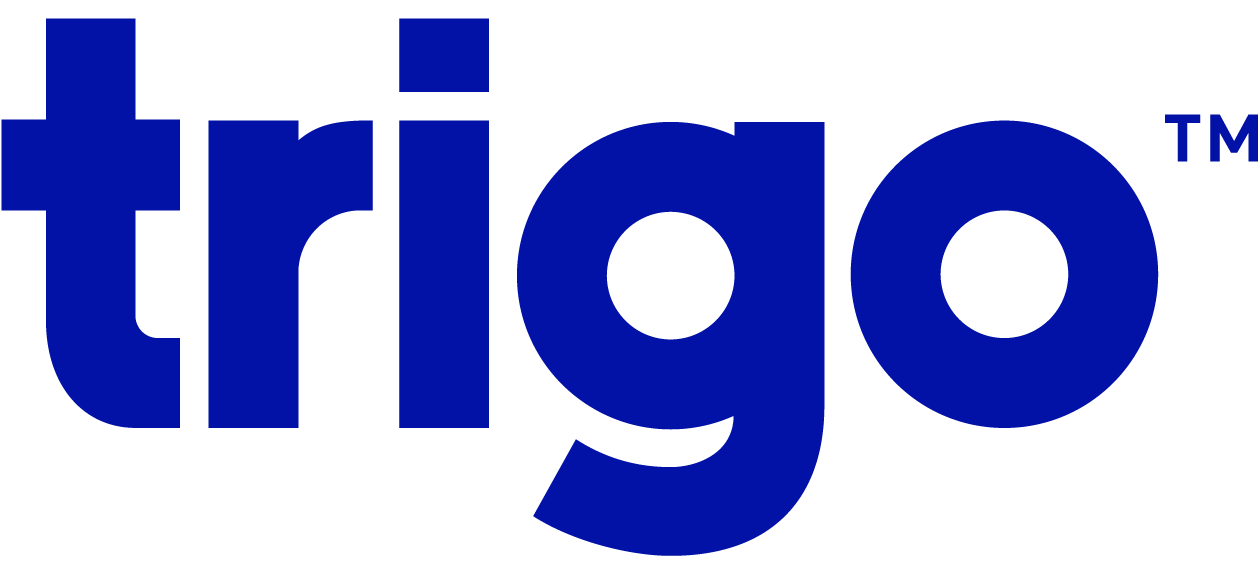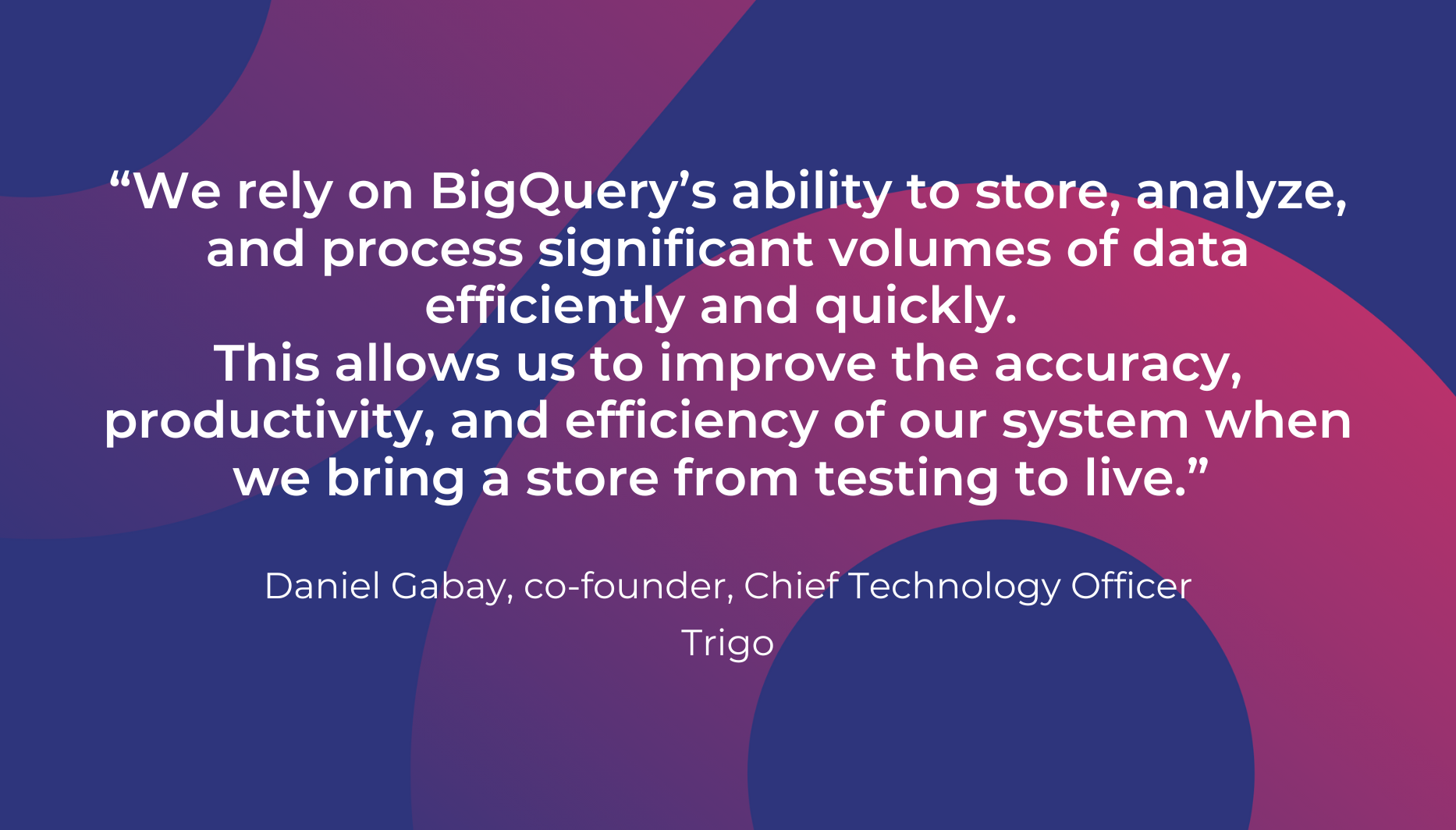How Felix Pago used DoiT Cloud Intelligence™ to reduce cloud waste and scale responsibly
Felix Pago used DoiT Cloud Intelligence™ to cut Firestore costs by 70% and align engineering with real-time, intent-aware cloud financial insights at scale.
Meet the team leading DoiT
Hear what’s new at DoiT
Unlock revenue through expert partnerships
Discover career opportunities
Award-winning partners of cloud providers


Trigo’s ongoing partnership with DoiT is helping it achieve the scalability and accuracy for automated grocery shopping
Google Cloud results
Supermarket shopping has seen some fundamental changes over the past decade. Online grocery shopping has become increasingly popular and saw even bigger gains during the COVID-19 pandemic. In 2021, online grocery sales were predicted to pass $100 billion in the US alone. And it’s a trend that is becoming ever more popular worldwide. Does this mean the days of roaming the supermarket aisles are over? Not even close. Many supermarket chains continue to explore ways of making the in-store experience faster, more efficient, and stress-free. Self check-outs were a first step towards offering shoppers autonomy. But what if you could simply load up your shopping basket and walk out of the store, without having to queue at a check-out? Trigo offers this ‘seamless shopping’ experience to future-proof supermarket chains.
Trigo was founded in 2018 by brothers Michael and Daniel Gabay with the aim of transforming the way we do our grocery shopping. They wanted to create grocery stores that are powered by AI and that use data to improve the shopping experience. “Our mission, first and foremost, is to help shape a new way for customers to do their shopping in-store. We want to take brick and mortar stores into the future,” says Daniel Gabay, co-founder and Chief Technology Officer of Trigo.
This digitalization of the supermarket shopping experience requires a great leap forward in technology. Trigo supplies retailers with a technological infrastructure that turns their stores into “smart stores,” allowing shoppers to simply shop and go. No tills. No checkouts. Trigo applies its proprietary algorithms to ceiling-mounted cameras that automatically crunch and analyze anonymized data on customers’ journeys and product choices. And each customer’s shopping is tracked and billed through Trigo’s solution, EasyOut™. The average shopper is not always predictable. Shoppers can put items back on the shelves, swap out items, or rearrange what is in their shopping baskets as they move around a store. So, the Trigo team had to create a way to understand and interpret shoppers’ behavior.
“To make a truly frictionless shopping experience, you need to account for every interaction in the store, before the shopper leaves with their items,” says Gabay. “We do that by generating a 3D model of each store’s ecosystem, and then when a shopper walks into the store, the shopping experience is triggered. We then continuously measure their virtual shopping basket, using AI computing and 3D modeling from hundreds of cameras simultaneously connecting and generating this unified experience.”
3D modeling can achieve high accuracy while supporting natural human interactions in the store, such as putting an item back on the shelves. This enables a fully seamless shopping experience, so people don’t have to act or interact with the products differently in order to receive an accurate basket or receipt, allowing them to truly enjoy autonomous stores.
This level of technological transformation requires partners that are innovative and can provide scalable solutions. That’s why Trigo chose Google Cloud.
Delivering scalability to Trigo’s shopping solutions
The main factor that Trigo looked for in a cloud partner was flexibility. Trigo needed an infrastructure that could scale easily, be fast, and be efficient. As a startup, Trigo was very focused on coding times, so cost-effectiveness was also key to its choice. Google Cloud offered the company exactly what it wanted to fulfill its vision. “We felt Google Cloud was the best solution for what we needed. Beyond Google’s Cloud robust capabilities and products, we chose Google because they have been a proactive partner who looks beyond the bottom line and are attentive to our needs. For us, having them in our corner was crucial.” says Gabay.
Trigo is expanding globally, with new stores opening and sending real-time data from all over the world—North America, Europe, the Middle East, and more. Google Cloud has servers present in all of these regions. “Having a partner with an extensive global presence helps Trigo provide a better overall service for our retailers. For example, by using local servers, we can reduce the latency time for receipts and shorten the time we can process the data,” says Gabay.
As Trigo opens more stores, there will be a significantly heavier data load for it to store and analyze. Gabay explains: “We chose Google Cloud because we needed a cloud service partner that could handle this rapid addition of data, as well as work on short timelines without any lags or blackouts that will affect the rollout of our new stores and bottom line for us and our retailers. For us, this level of reliability and scalability was key.”
Trigo’s seamless shopping experience is dependent on a lot of complex, moving parts, using everything from AI and 3D modeling to barcode data. “I think our role in the physical retail space is to support this convergence between online and offline to support all the major trends for omnichannel communication,” says Yotam Aronovitz, Head of Partnerships at Trigo.
Trigo began using Google Cloud a few months after founding the company, and it partnered with DoiT International to help with the implementation. Trigo’s ongoing partnership with DoiT is helping the company grow with confidence, providing access to unlimited consultancy and support, as well as unique cost savings.
The different solutions available on Google Cloud allow Trigo to manage and modify the shopping experience for each retailer. Trigo is working with Cloud Bigtable as it needs a database that is constantly growing. Google Kubernetes Engine (GKE) is integral to helping run Trigo’s microservices architecture.”GKE can autoscale its pods up or down as needed, which can support the fluctuating load volumes in the stores throughout the day,” says Gabay.
Pub/Sub helps manage the constantly fluctuating data streams between the cloud and the stores. And the company uses BigQuery as its main data warehouse. “We rely on BigQuery’s ability to store, analyze, and process significant volumes of data efficiently and quickly,” says Gabay. “This allows us to improve the accuracy, productivity, and efficiency of our system when we bring a store from testing to live. This is crucial for our customers because the faster we are able to improve these metrics and open the stores, the lower the cost and the more value we are able to provide our customers.”
As a start-up, Trigo initially focused on being fast to market. Now it’s changing its outlook and is looking at how it can fine-tune accuracy and minimize the cost-per-store for its seamless shopping solution. Working closely with some of the world’s top supermarket retailers has given Trigo the opportunity to see exactly how its new way of shopping really works. Working with Google Cloud has helped Trigo improve productivity and efficiency in operating its new stores. Peak grocery shopping hours are concentrated into several bursts throughout the day, while for the remainder of the time, the store is quite empty. Google Cloud has provided Trigo with a mutable infrastructure so it can respond accordingly during rush hours with on-demand cloud and data analysis resources, but it can also tier down during times with low traffic, all at a reasonable cost.
This collaboration was key to the success of the first fully automated Trigo-powered store in London. This project is a fascinating glimpse into the possible future for retail. And another sign of how productive the relationship between Trigo and Google Cloud continues to be. “The Google Cloud team has initiated meetings with their AI, architecture and machine learning experts to learn our system and help find solutions to our challenges. Most importantly, they’ve been invested in our vision from the beginning and have provided us with the tools to facilitate our growth and success,” says Gabay.
Trigo sees its partnership with Google Cloud as strategic to its future expansion. “There are many future opportunities we can see with this partnership, both from the technical and business perspectives, and we are happy to have Google Cloud as a partner,” says Gabay. Soon seamless shopping may not seem like science fiction, but rather a simple, everyday reality.
Felix Pago used DoiT Cloud Intelligence™ to cut Firestore costs by 70% and align engineering with real-time, intent-aware cloud financial insights at scale.

Growing the reservation platform for the world’s Michelin restaurants with DoiT’s expertise. CoverManager, the go-to reservation and booking platform for the world’s foremost restaurants, partners with DoiT to control costs and maintain high server stability

How Opterrix partnered with DoiT to deliver near-instant hailstorm analysis and cut feature delivery times by half.
From cost optimization to cloud migration, machine learning and CloudOps,
we’re here to make the public cloud easy.
From cost optimization to cloud migration, machine learning and CloudOps, we’re here to make the public cloud easy.
Ready to get started?
You will receive a calendar invite to the email address provided below for a 15-minute call with one of our team members to discuss your needs.